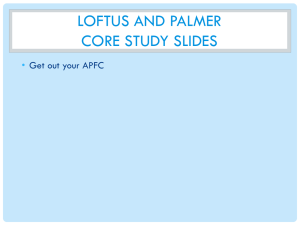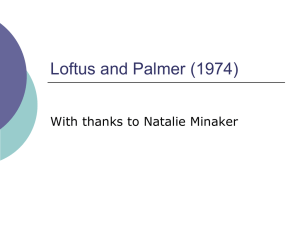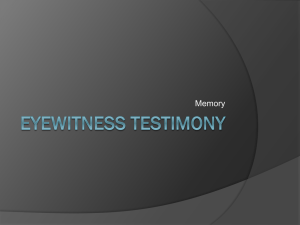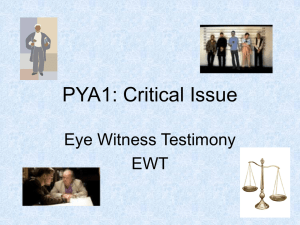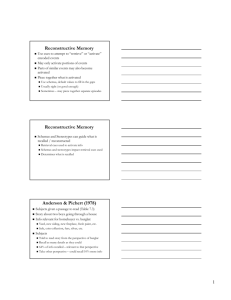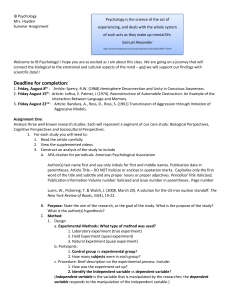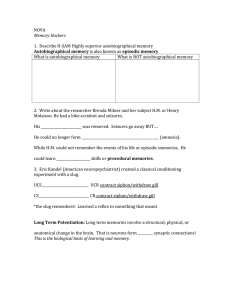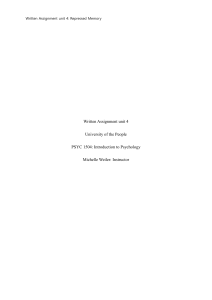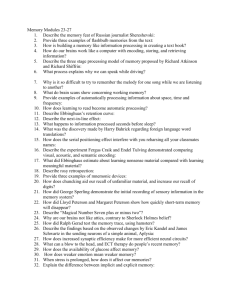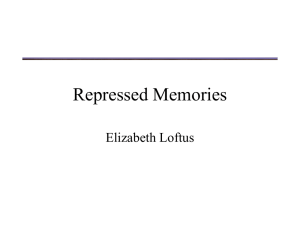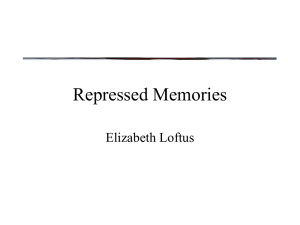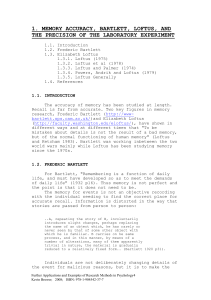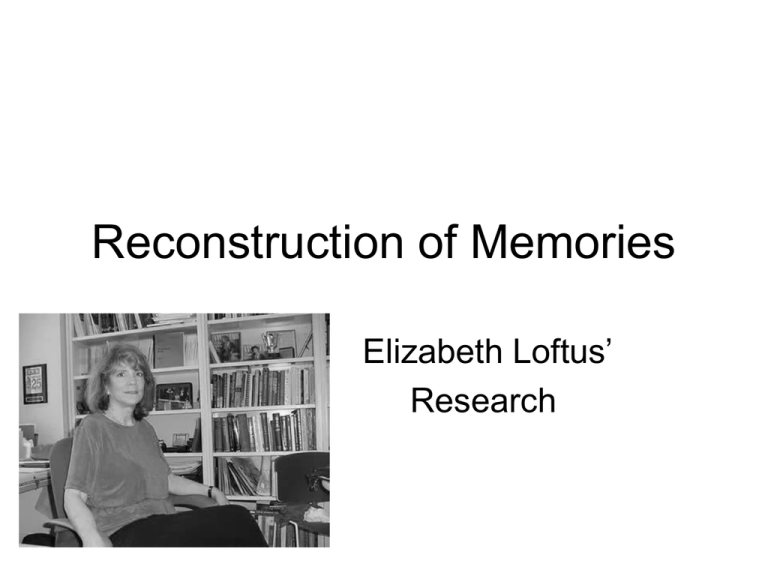
Reconstruction of Memories
Elizabeth Loftus’
Research
Post Event Information/
Misinformation Effect
Information given to the eyewitness after the event
occurs
• Loftus & Palmer Study(1974):
– Does post-event information alter memory for the original
event?
– Do misleading questions alter a witness’ memory?
– Procedure: Subjects shown video of a traffic accident
involving a stop sign and then asked a series of questions
about it
– Half the subjects were asked misleading questions about a
yield sign.
Figure 7.14 (p. 262)
Picture of traffic accident similar to one seen by the participants in the Loftus et
al. (1978) “misleading postevent information “ experiment.
Cognitive Psychology: Mind, Research, and Everyday Experience, 2nd Ed. by Bruce Goldstein. Copyright ©
2008 by Wadsworth Publishing, a division of Thomson Learning. All rights reserved.
Loftus & Palmer (1974):
Procedure
“How fast were the vehicles
going when they…”
Group 1: “…smashed into each other?”
Group 2: “…collided?”
Group 3: “…bumped into each other?”
Group 4: ”…hit each other?”
Group 5: “…contacted?”
Loftus & Palmer (1974):
Results
44
42
40
38
36
34
32
30
Smashed
Collided
Bumped
Estimated Speed
Hit
Contacted
Effects of misleading
information
Loftus (1975)
viewed film of car accident
(There was no barn)
filled out a questionnaire
Group A “How fast was the car going when it passed the barn”
Group B “How fast was the car going when it passed the stop sign”
1 Week later, “Did you see a barn?”
Group A respond “Yes” (more than 20%)
Group B respond “No”
Misleading post-event information can lead to false memories
Cognitive Psychology: Mind, Research, and Everyday Experience, 2nd Ed. by Bruce Goldstein. Copyright ©
2008 by Wadsworth Publishing, a division of Thomson Learning. All rights reserved.
Implanting New Memories
• Loftus & Pickrell- 3 true events & 1
fictitious “lost in the mall” event
Procedure:
– Booklet- description of the event and they provide
more details (3 true, 1 false)
– 68% remembered the true events & 29%
remembered the false event
– Differences: more descriptive words used to describe
the real events
Can memories be implanted in
children?
• Stephen Ceci’s Experiment (1994)
• Subjects 96 children, ages 3-6
• Each child was read a list of events, one false about
getting their hand caught in a mouse trap
• They were told some events not real
• “Think really hard”
• 91% correctly identified real events
• 34% remembered the false event
• Age was a factor. Younger children 3-4 more
suggestible
The Kelly Michaels Case
• In 1988, a school teacher named Kelly
Michaels was convicted of 115 counts of
sexual abuse against twenty 3 to 5 yearold children
• She was sentenced to 47 years in prison.

